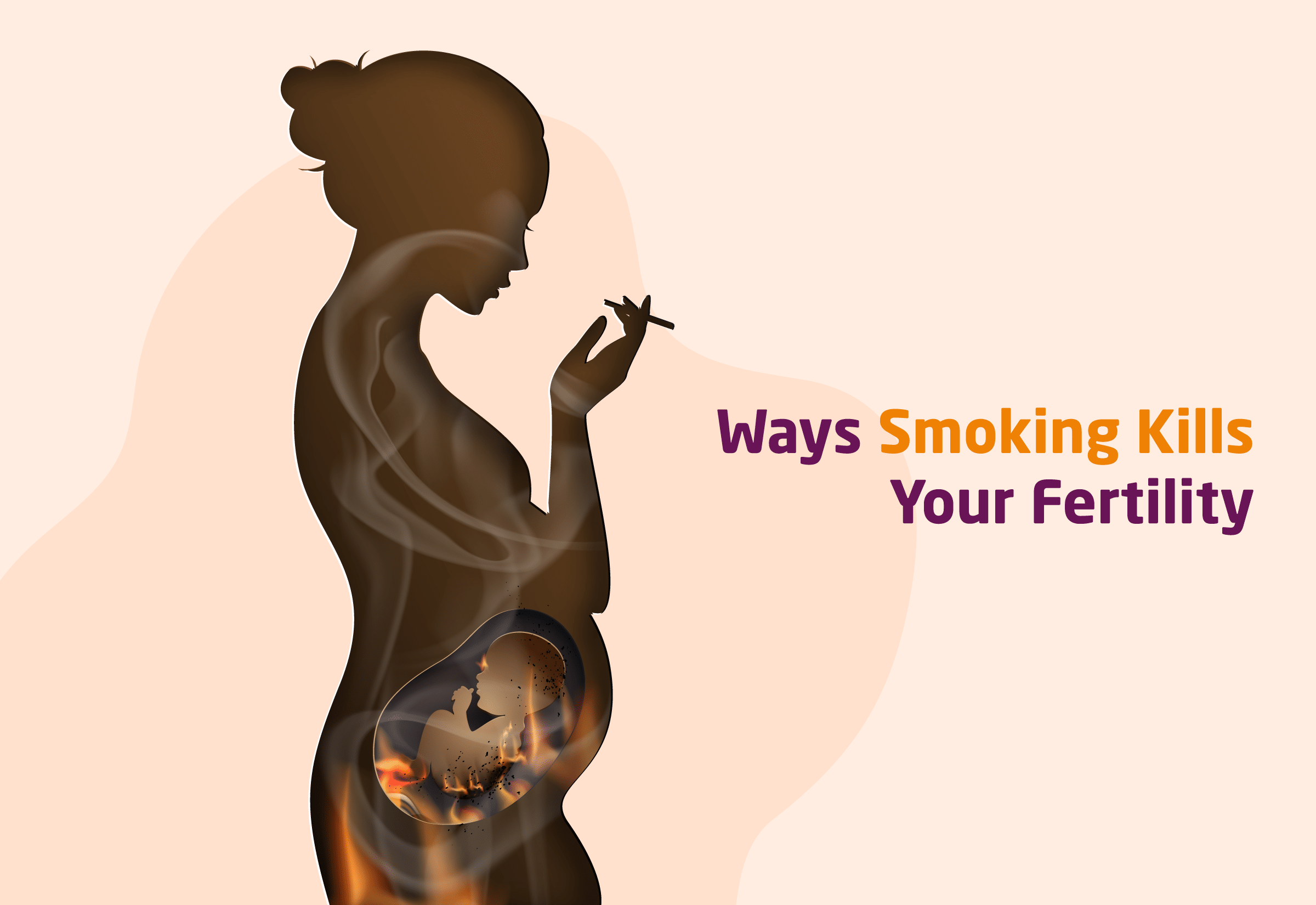Ways Smoking Kills Your Fertility
Smoking is one of the most harmful habits which affects general health, and the effects on fertility are no different. Since smoking has a detrimental effect on the future child’s general health, the majority of fertility specialists advise their patients to stop smoking while they are trying to conceive. Here are the top 10 ways smoking can impair your ability to get pregnant:
Related: Smoking And Fertility: Effects Of Smoking On Male & Female Fertility
ECTOPIC PREGNANCY
Ectopic pregnancy is a term used to describe pregnancies that have developed outside of the uterus, most frequently in the fallopian tube. In addition to facilitating the union of the sperm and egg, the tubal cilia are also in charge of delivering the freshly fertilized egg, which is now a developing embryo, to the uterus for implantation. The embryo is more likely to not be carried to the uterus for implantation when the cilia are destroyed. Smokers have a higher risk of developing an ectopic pregnancy because their tubes are not working properly. Ectopic pregnancies can result in the loss of an ovary or a fallopian tube and pose a serious health risk.
MISCARRIAGE
When a woman becomes pregnant, smoking increases her risk of miscarriage. There could be a number of causes for this. One of the most likely explanations is that the chemicals in tobacco smoke cause DNA damage and harm to the “machinery” in the egg that controls how chromosomes separate normally. The use of smokeless tobacco products, such as vaping, is also linked to an increased risk of miscarriage, therefore the increased risk of miscarriage is not simply attributed to the chemicals in tobacco smoke. The risk of miscarriage may rise as a result of inadequate blood supply to a growing pregnancy caused by the narrowing of blood vessels seen in smokers.
Related: How To Get Ready For A Healthy Pregnancy After Miscarriage?
TUBAL DAMAGE
The cilia that line our fallopian tubes softly beat to pick up and move the ovulated egg and the sperm. Think of them as the tiny bristles on a brush. The egg and sperm can interact because of these delicate cilia. Smoking affects how well the cilia work, which can stop fertilization.
EARLIER MENOPAUSE
Women are born with all the eggs they are ever going to have. One egg “wins” and ovulates each month, and the remaining eggs in that small group start to disappear. We get close to menopause when our egg supply starts to diminish. It has been discovered that smoking women experience menopause 1-4 years earlier than their non-smoking counterparts. It is believed that the chemicals in tobacco smoke are to blame for our eggs dying off more quickly. As a result, smokers frequently exhaust their egg supply earlier than nonsmokers.
Related: Can You Get Pregnant With IVF After Menopause?
BAD IN VITRO FERTILIZATION (IVF) OUTCOMES
Most women today are aware of in vitro fertilization. The American Society for Reproductive Medicine (ASRM) committee opinion on smoking and infertility states that lower live birth rates were observed even when women who smoked used donor eggs (eggs from a younger, non-smoking woman) to create embryos, indicating that smoking may also have an impact on the uterus. According to some research, it takes twice as many IVF treatments for smokers as it does for nonsmokers to sustain a healthy pregnancy.
SPERM ABNORMALITIES
It has been demonstrated that smoking and using smokeless tobacco causes aberrant sperm parameters such as decreased concentration, decreased sperm motility, and improperly shaped sperm. There is data that suggests smokers’ sperm (and their partners’ sperm) have a tougher time fertilising the egg. The above-mentioned worse IVF results are a result of this.
PRETERM DELIVERY
Preterm birth is believed to increase your chance of smoking. Preterm birth is the delivery of a child before 37 weeks. Depending on how early they were born, premature babies frequently spend days to months in the neonatal intensive care unit (NICU) and are considerably more likely to experience serious issues, such as underdeveloped brains and lungs, and even as mortality.
BIRTH DEFECTS
Children born to smokers are more likely to have birth abnormalities and disorders like Down’s syndrome due to DNA damage and damage to the machinery that normally separates chromosomes.
SMALL BABIES
Even if they are born at full term, babies are still in danger of being less in weight in addition to being born early. Compared to their contemporaries born at the same gestational age who were of normal weight, babies who were born small for gestational age (SGA) have a higher chance of dying and developing learning difficulties, autism, and behavioural issues.
CERVICAL AND OVARIAN CANCER
Most people know that smoking increases the chance of lung cancer, but did you realise that smoking also increases the risk of nearly all types of cancers? The human papillomavirus (HPV) is the virus that causes cervical cancer in the majority of instances. Most sexually active adults will have had HPV at some point in their lives because it is so widespread. The abnormal alterations found on pap smears frequently disappear on their own since the body is often able to fight off this virus. Smoking, however, weakens our body’s defences against this infection. As a result, smokers are much more likely to get cervical cancer than nonsmokers. Patients suffering from cancer may require extensive surgery, chemotherapy and/or radiotherapy. All these treatments have adverse effects on fertility. The best thing you can do to aid your body in eradicating the virus if your pap smear results are abnormal is to stop smoking.
